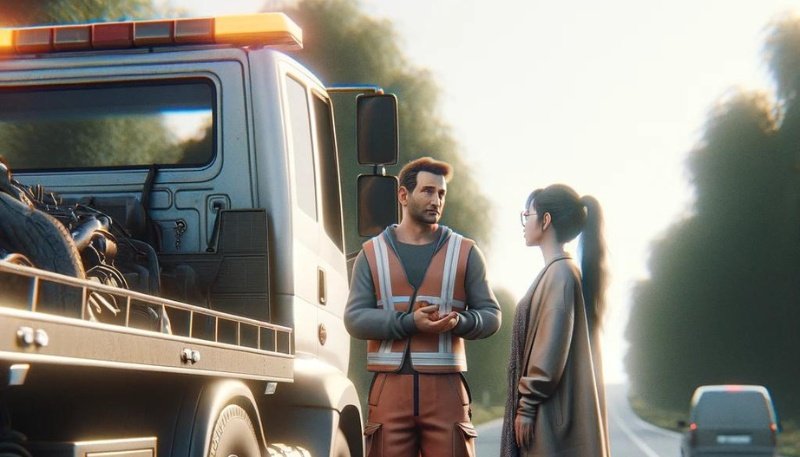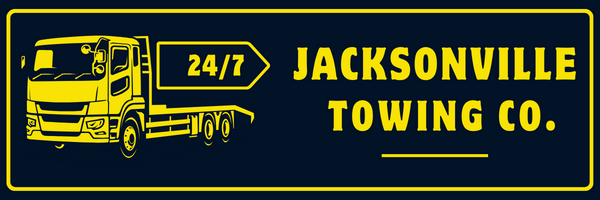Whether or not your tow truck driver can drive you home depends on the company’s policy and the busyness of the driver at the time.
Some companies that prioritize customer service might let you tag along as a courtesy. Other companies that are concerned about liability and insurance won’t allow it.
Be sure to ask your towing service provider directly. Not all tow trucks are insured for passenger transport, and safety could be a concern—tow trucks aren’t as comfy or equipped as regular cars.
The final say often falls to the driver. Knowing the rules and alternatives ensures you’re not left stranded.
Understanding Tow Truck Policies
Before you request a tow, understand that tow truck companies’ policies on giving rides home can vary significantly.
Each company has its own protocols that dictate whether or not they’ll offer you a lift once your vehicle is hooked up.
These guidelines are often shaped by factors such as insurance policies, the size of the tow truck, and the company’s focus on customer service.
When you’re dealing with a breakdown or accident, your first instinct might be to assume the tow truck driver will drop you off at home. However, it’s not always a given.
Some companies prioritize customer service and may go the extra mile to ensure you’re not left stranded.
They might have specific provisions for passenger transport, especially over short distances or as a courtesy in stressful situations.
On the other hand, company protocols might strictly limit this practice due to liability concerns or operational constraints. It’s essential to inquire directly with the service provider before making assumptions.
A quick conversation can clarify whether you’ll need to arrange alternative transportation or if the tow truck can accommodate your needs.
Being informed helps you plan better and avoid unnecessary stress during an already challenging time.
Legal and Safety Considerations
Understanding the varying policies of tow truck companies on providing rides is just the first step; it’s also important to consider the legal and safety implications of getting a lift after your vehicle is towed.
Insurance implications play a significant role in this scenario. Not all tow truck companies have insurance policies that cover passengers in the event of an accident.
This means if you’re offered a ride and something happens on the way, you might not be protected or entitled to compensation for injuries.
Additionally, passenger rights can vary depending on the jurisdiction. In some areas, specific regulations may govern your right to ride along with your vehicle.
It’s crucial to be aware of these laws to ensure you’re not unintentionally violating any rules or putting yourself in a situation where your rights aren’t fully protected.
Safety is another concern. Tow trucks are designed primarily for hauling vehicles, not carrying passengers.
This means they may not have the same safety features or passenger comforts as a standard vehicle.
Before accepting a ride, consider these aspects to ensure your safety isn’t compromised. Being informed and cautious can help you make the best decision in these situations.
The Drivers Discretion
Ultimately, whether you get a ride home with your towed vehicle often depends on the tow truck driver’s discretion.
Some drivers may be more amenable to offering a ride, especially if they feel it doesn’t pose any additional risk or inconvenience.
On the other hand, passenger comfort is also a crucial consideration. The cab of a tow truck is designed primarily for the driver and perhaps one passenger, making it less accommodating than typical passenger vehicles.
This space may not provide the comfort or the safety features you’re accustomed to, which can influence the driver’s willingness to offer a ride.
Additionally, the presence of personal protective equipment or other safety protocols can further impact this decision.
Alternatives for Getting Home
If your tow truck driver can’t offer you a lift, several alternatives can help you get home safely and efficiently.
First, consider public transport options. Depending on your location, buses, trains, or subways might be available.
These are often the most cost-effective ways to travel, especially if you’re going a considerable distance. Check the schedules and routes in advance to ensure they align with your needs.
Ride-sharing apps are another reliable alternative. Platforms like Uber and Lyft offer convenient, door-to-door service at various price points.
With just a few taps on your smartphone, you can summon a ride that’ll take you directly home.
These apps also provide estimated arrival times and fare quotes so that you can decide the best option for your situation.
In some cities, traditional taxi services are still a viable option. They can be hailed directly from the street or booked via a phone call.
While they might cost a bit more than ride-sharing services, taxis offer a straightforward way to get where you need to go without the need for an app.
Whichever option you choose, make sure you’re familiar with the service and comfortable with the cost and travel time to ensure a smooth journey home.
Preparing for a Tow Scenario
Start by keeping your vehicle in good condition, regularly checking the tires, battery, and engine.
This can’t only prevent some situations that may require towing but also ensure that your vehicle is safe to tow when necessary.
Equally important is having a list of emergency contacts. This list should include a reliable towing service, your insurance company, and a person you can call in any emergency.
Ensure these contacts are saved in your phone and kept in a physical form inside your vehicle. Knowing who to call immediately can significantly reduce the time and stress involved in managing a tow.
Additionally, familiarize yourself with your insurance policy’s coverage regarding towing and roadside assistance.
Some policies may offer specific services or have preferred providers that can make the process smoother and potentially cheaper.

